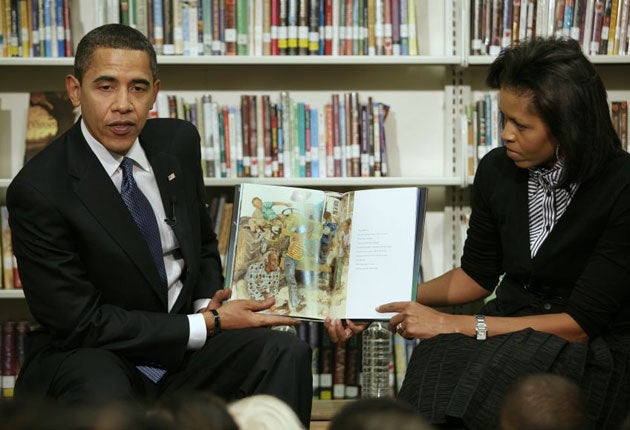Obama spells out clampdown on bonuses
President demands restraint from Wall Street in return for federal aid

President Barack Obama said he would examine ways to change Wall Street's bonus culture and curb excessive pay as he launched a new $500,000 (£340,000) cap on salaries for the bosses of banks that have to be propped up by the US taxpayer.
In some of his sternest language yet, Mr Obama said he would be "demanding restraint" in return for federal aid. "For top executives to award themselves these kinds of compensation packages in the midst of this economic crisis is not only bad taste, it's bad strategy – and I will not tolerate it as President," he said.
The measures announced yesterday may curb pay for only a small number of executives, or perhaps none if no more banks come to the brink of collapse. Only banks receiving "exceptional assistance" will have to abide by the rule, since those taking money generally available from the $700bn Wall Street bailout fund can ask their shareholders for a waiver. And executives could in any case still be paid more than $500,000, as long the extra comes in the form of shares that they cannot cash in until taxpayers' money has been paid back.
The new measure will not apply retrospectively to bosses whose companies have already been given several cash infusions from the government. If the $500,000 pay cap had been in place from the start it would have affected the bosses of Citigroup, Bank of America, insurance giant AIG and the car makers General Motors and Chrysler. Citigroup's Vikram Pandit made $3.1m last year, Ken Lewis of Bank of America took home more than $20m, of which $5.75m came in salary and bonuses.
Mr Obama said yesterday that the Treasury was examining additional measures to rein in a bonus culture across Wall Street that rewards short-term risk taking and encourages the sort of gambling that triggered the credit crisis. The White House hopes that the real impact of these first limits on executive pay will be a profoundly shaming effect. Even banks not taking exceptional assistance will have to disclose a vast array of company perks and privileges for top employees, and will have to hold an annual shareholder vote on pay policies.
Mr Obama has been vigorously using the "bully pulpit" of his office to demand restraint by Wall Street in the face of public fury over the banks' role in creating the worst financial crisis since the Great Depression. Last week he said paying $18bn in bonuses last year was "shameful" when banks had posted multibillion-dollar losses and been forced to take handouts to stave off a financial panic. He repeated those comments one more time yesterday. Tim Geithner, the Treasury Secretary, said a plan for distributing the second half of the $700bn bailout fund would be announced next week, but it would come with more strings and more transparency than anything demanded by Mr Bush's team.
Mr Obama also used his press conference to put more pressure on the Senate to pass an $820bn economic stimulus bill aimed at creating jobs and pulling the US out of recession. As Republicans and Democrats argue over the right balance of spending projects and tax cuts, Mr Obama asked them "not to make the perfect the enemy of the essential".
He was trying to get his administration back on message after the distractions of Tuesday, when two proposed cabinet members – including his Health Secretary nominee, Tom Daschle – were forced to pull out due to unpaid taxes.
"I screwed up," Mr Obama said. "It's important to send a message that there aren't two sets of rules, one for prominent people and one for ordinary folks who pay their taxes."
Subscribe to Independent Premium to bookmark this article
Want to bookmark your favourite articles and stories to read or reference later? Start your Independent Premium subscription today.

Join our commenting forum
Join thought-provoking conversations, follow other Independent readers and see their replies